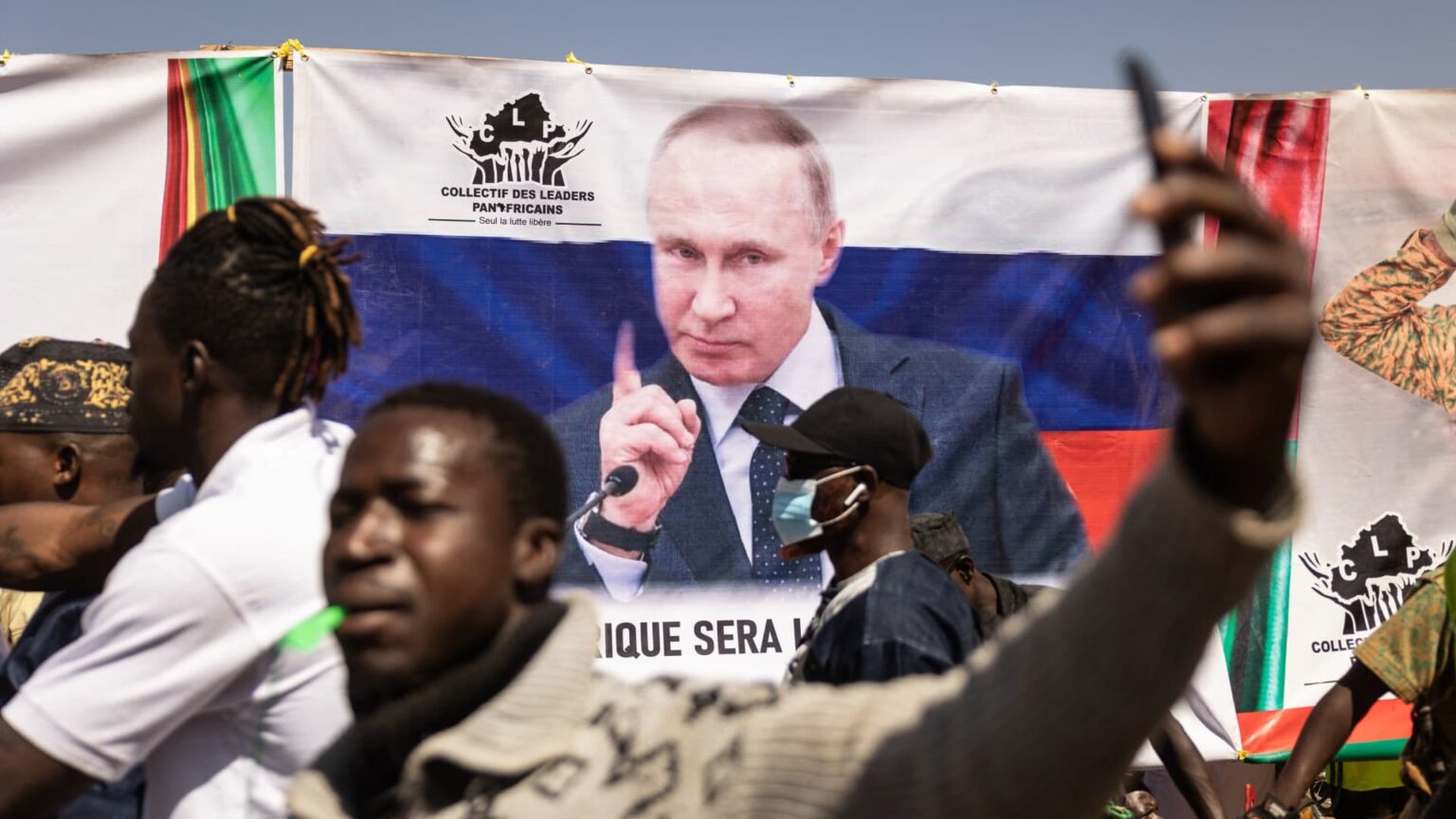Russia’s sphere of influence is growing as propaganda and diplomatic efforts gather momentum and Western powers fail to counter the Kremlin’s narratives, analysts suggest.
A report from the Economist Intelligence Unit earlier this month indicated that net support for Russia had grown in the year since the full-scale invasion of Ukraine, as Moscow ramps up its diplomatic charm offensive of previously neutral or geopolitically unaligned countries.
Assessing countries’ enforcement of sanctions, U.N. voting patterns, domestic political trends and official statements alongside economic, political, military and historical ties, the EIU observed a significant uptick in the number of countries now leaning toward Russia — from 29 last year to 35 today.
“China remains the most significant country in this category, but other developing countries (notably South Africa, Mali and Burkina Faso) have also moved into this grouping, which accounts for 33% of the world’s population,” the EIU report said, adding these trends highlight Russia’s growing influence in Africa.
Chinese President Xi Jinping met with Russian President Vladimir Putin in Moscow earlier this month and the two leaders vowed to deepen economic ties.
While South Africa caused controversy in February by holding joint military drills with Russia and China on the anniversary of the invasion of Ukraine. South African Foreign Minister Naledi Pandor indicated that the “massive transfer of arms” from the West to Ukraine had changed Pretoria’s outlook and lauded the country’s “growing economic bilateral relationship” with Moscow.
The EIU said the number of neutral countries rose from 32 to 35, now representing almost 31% of the global population.
“Some previously Western-aligned countries, including Colombia, Turkey and Qatar, have moved into this category as their governments are seeking to reap economic benefits from engaging with both sides,” the EIU said.
“However, both Russia and China are upping the ante in recruiting those countries that are non-aligned and neutral.”
By contrast, the number of countries actively condemning Russia fell from 131 to 122. The U.S. and European Union-led bloc including “West-leaning” countries represents around 36% of the global population, and has exhibited a “strong level of collaboration on sanctions” along with consistent military and economic support for Ukraine, the report said.
However, this bloc also represents just under 68% of global GDP, highlighting an emerging disconnect between wealthy Western economies and the Global South.
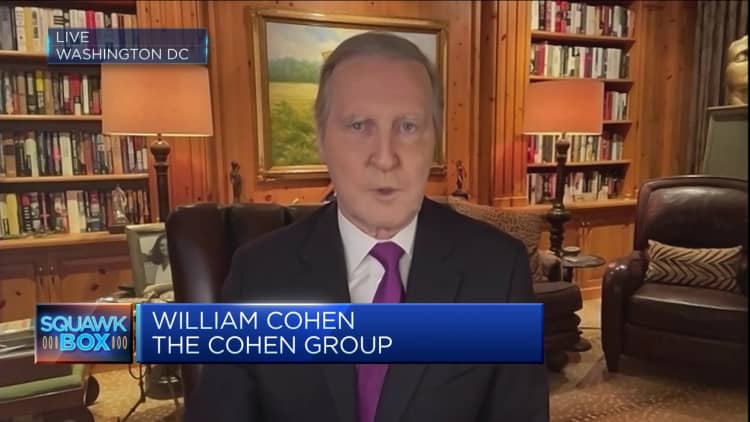
“Russian propaganda in developing countries is working extremely well, stoking up resentment against former colonial powers, and I would say also fueling the idea that sanctions from Western countries are fueling global food insecurity, global energy insecurity especially in emerging countries,” EIU Global Forecasting Director Agathe Demarais told CNBC.
“Obviously this is wrong, this is not the case, but I think that it works very well in disinformation campaigns, propaganda campaigns.”
The Russian government has been contacted for comment.
Demarais highlighted that there is a perceived “hypocrisy” in Western condemnations of Russia in the Global South, given the history of Western military intervention — a sentiment Russia has sought to foment in order to deflect attention from its actions in Ukraine.
Many in developed Western countries view the idea of Russia being an “appealing” and “attractive” country to some in the Global South as “impossible,” Demarais said, which underestimates the power of Russia’s message and its positioning of itself as a savior.
Russia and China have increasingly represented themselves to developing nations as alternatives to the West as economic and military partners, in that neither will attach demands around democracy or human rights to diplomatic relations.
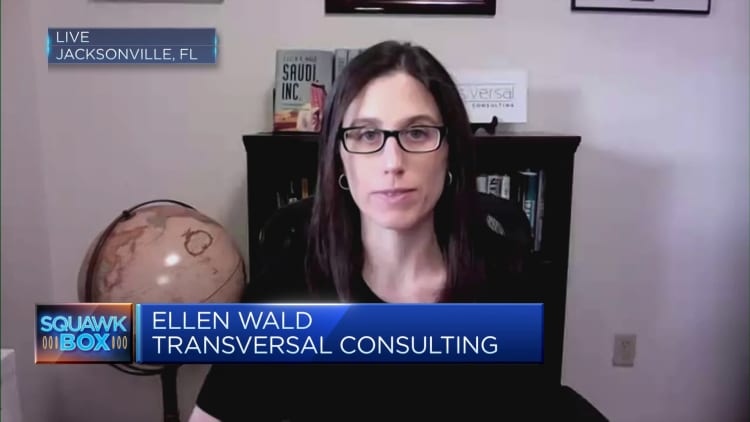
“There is a lack of willingness to acknowledge that people may not be thinking like we do, and it is really worrying,” Demarais said.
Western leaders “are thinking about it in terms of we are on the right side of history, which is true, but it doesn’t mean we don’t need to explain it.”
Countering organized Russian propaganda first requires acknowledging the problem, and building awareness about the aims and effectiveness of sanctions, she said.
“I think there is a lack of knowledge about sanctions and how they work, what they do etc., and Russia is obviously using this to its advantage. It’s going to be a very long-term trend, I’m not sure there is any quick magical fix. It’s not a pretty picture.”
A ‘regional conflict’
The largest economy and population center still falling under the EIU’s “neutral” designation was India, and Moscow claimed earlier this week that oil exports to India increased 22-fold last year.
At the recent Raisina Dialogue geopolitics forum in New Delhi, Russian Foreign Minister Sergey Lavrov was the subject of laughter from delegates when he suggested that the Ukraine war was “launched against” Russia.
However, he received supportive applause when bemoaning Western hypocrisy and double standards as he highlighted the U.S.-led invasion of Iraq and other perceived Western transgressions.
He also tried to advance the narrative that sanctions from the West were responsible for grain supply shortages experienced by developing countries as a result of the war.
Rachel Rizzo, senior fellow at the Atlantic Council’s Europe Center, was in the audience, and told CNBC that perspectives on the war were starkly different in India.
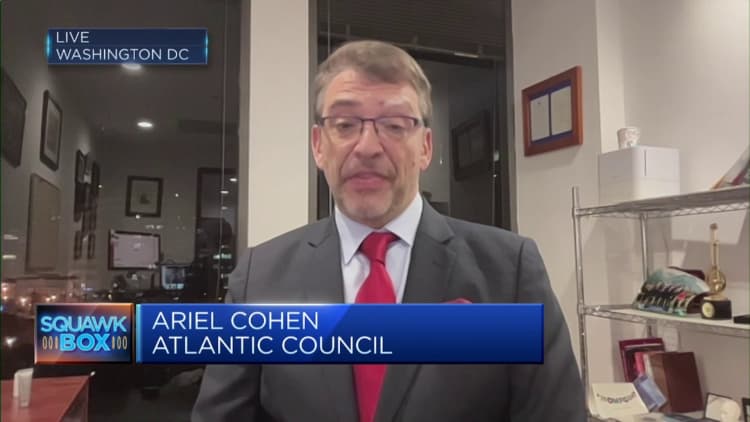
“What becomes clear when you get outside of U.S./European circles is that for us, the Russian invasion of Ukraine is the very clear centerpiece of much of our policy decisions and conversations, and then when you talk to people that aren’t in the U.S. or Europe, it becomes clear that the conflict is very much regional, and a much smaller part of a broader puzzle,” Rizzo told CNBC via telephone from Washington, D.C.
“What I thought was interesting that I heard a few times was that this is a regional conflict that the U.S. and Europe, particularly the U.S., have made global because of our great power competition with Russia and our global sanctions regime.”
She said many developing countries are being placed in positions they “don’t want to be in” by demands from the U.S. and Europe to more outwardly side with Ukraine, even though many nations constituting the Global South actually voted in favor of the U.N. resolution condemning the invasion.
“What has happened in the U.S. is this framework of democracies versus autocracies has been the framing position of Biden and his foreign policy, and I don’t think that lands for a lot of the rest of the world, and it’s not a framework that I think countries identify with in many ways,” Rizzo said.
“It’s interesting to see how the conversations that we have here don’t necessarily reflect what’s happening in countries that are very important, I think, to our foreign policy and our geopolitical standing.”
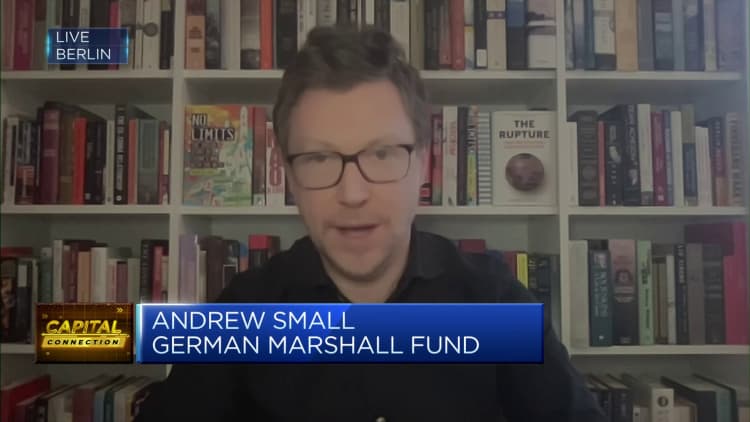
She also suggested it was overly simplistic to attribute the shifting sands primarily to Russian disinformation campaigns, as this underestimates countries’ agency and self-interest.
“Not every country that decides to accept Russian energy imports etc., or has pro-Russian sentiment throughout their populations, not all of that is a result of Russian information campaigns or disinformation campaigns,” she said.
“Some of this is the very real consequences of Russia looking at these countries as opportunities, the U.S. not being seen as the benevolent hegemonic power as we like to see ourselves. It is much more complicated than Russia pushing disinformation narratives., and unfortunately I think when you attribute, as we like to do, pro-Russian sentiment to that, you lose a whole lot of what is actually going on.”
Read the full article here


